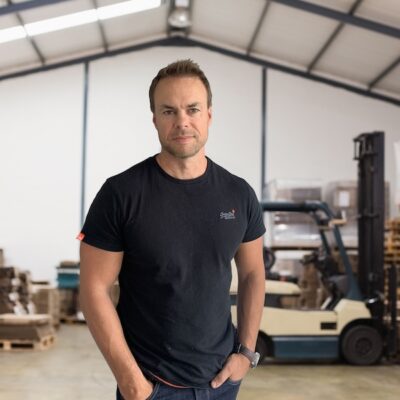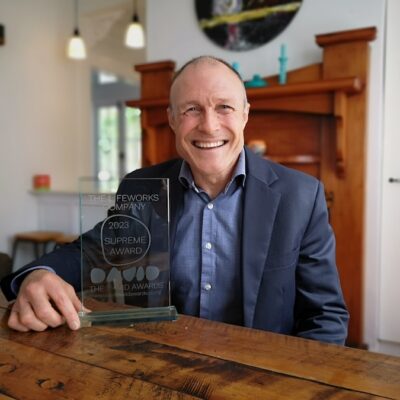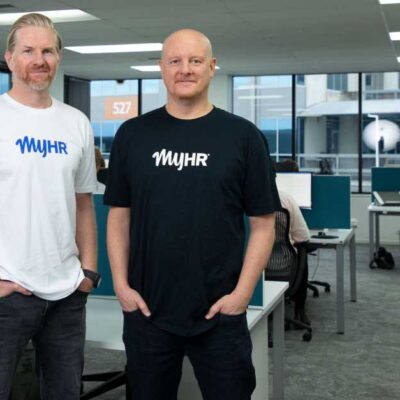The answer lies in the soil
Respond is the story of one man’s passion that became an obsession, and in turn became a proven soil-care system for increasing pasture, tree and crop production without chemical fertilisers.
There is a quiet revolution under way that had its genesis in Gisborne more than 35 years ago. Respond is the story of one man’s passion that became an obsession, and in turn became a proven soil-care system for increasing pasture, tree and crop production and reducing the need for chemical fertilisers. Put simply – it’s the way to grow.
By editor Glenn Baker.
A tiny strawberry plant, and a huge amount of love, can be all it takes to spark a passion for growing.
That’s how it happened for Gisborne-based farmer turned entrepreneur Dugald Hamilton (pictured).
“Raised by my grandmother to respect and look after the land, my earliest memories are of the garden,” he recalls. “Playing with plants, learning how to nurture them through winter, and picking strawberries as a reward. I loved nothing more than eating the literal fruits of my labour!”
That young passion became a 35 year career exploring how to nourish soil as effectively as possible, and the ultimate result of all that research is Respond – a simple, natural system that uses living bacteria and fungus to create a thriving below-ground eco-system.
In short, Respond helps nourish healthy soil, which in turn produces healthy, nutritious and resilient plants, without the use of chemicals or any specialist equipment.
It’s proven science, backed by multiple real-life trials. Respond actually grows its own nitrogen and now it’s changing the way a lot of other farmers are growing crops.
It’s widely accepted that conventional farming practice generally leaves the soil ecosystem depleted and deprived of life and of nutrients. And there are other proven benefits of the product’s use. Farm trials of the product have seen an increase of 150 percent in volume of pine trees, a 400 percent increase in weight-gain of cows eating feed grown using Respond versus chemical fertilisers.
Respond not only improves the quality of soil, it also helps soil process waste water more effectively.
“When we replace the chemical fertilizers with living biologics, we change the complete nutritional content of the food produced, causing a multitude of environmentally positive outcomes,” explains Dugald. “Cows produce more milk fat, put on more weight, pass less wind, and have lower urinary nitrogen.”
Having a higher nutrient content in the feed without any trace of chemical fertilizers is good for humans and reverses the environmental consequences, he adds.
“Animals are not harmful to the environment, it’s the chemicals in the feed that is. Respond is designed to give all growers a new and cost-effective platform to save costs, grow an added-value product where all associated production costs turn into an investment in their most significant asset, their land.
“Our key driver is to change the way the world grows food.”
Slow but sure progress
Although the development of Respond has been a 35-year journey for Dugald, he admits to only seriously attempting to build sales in the past five years.
He now has a board and GM, has conducted successful trials through Fonterra, and is receiving incredibly positive responses to the product.
“Our biggest accomplishments so far have been in gaining the trust of some of New Zealand’s most significant growers, where we were able to show them what we can achieve right under their feet,” says Dugald. “Being able to gain traction with growers has given us credibility for others to feel comfortable to entertain change. By going back to nature, all the answers are there – no additives, just proper guardianship, and environmental respect.”
Starting the patent process was scary he says, and then it became expensive.
“But to have our patent accepted in the US in its entirety opens the door for the other eight countries we have lodged the license in. By far, the most valuable thing to me is the faith people put in us. Most can’t understand how we do it, but all have the belief and the proof we can get it done.”
“Proving the science of Respond and growing the business has required a marathon effort – but the timing for expansion has never been better.”
Overcoming business challenges
Proving the science of Respond and growing the business has required a marathon effort – but the timing for expansion has never been better.
Dugald believes a large amount of refocusing took place during and after the Covid-19 lockdown. “I didn’t have to put out the recycling bin once during the lockdown, and that opened my eyes to a host of improved efficiencies in everything I do. While sales tanked, interest [in Respond] soared from a broader range of people than before.
“I’m not alone in thinking we can do better and what a great time to ‘do’ and not just ‘talk’. What goes into our soil goes into our food, and this is the top interest point in all our client discussions.
“Ultimately I believe a larger-than-average number of people would like to have better health outcomes, and the change they are making in their routines is what is going in their mouths.”
But he knows there are still challenges that lie ahead for the business.
“Living in a science-based world with a natural product is like mowing a lawn with a pair of scissors. I have always been astounded that we can put machines on Mars and men on the moon, but no one can tell me the groups of soil microbes and the day-to-day procedures they have. There are many arguments from many different angles, mainly due to funding streams or who’s paying the bill.
“I believe that proof of concept at a grower’s feet on their land seals the deal. All farmers may have different ways of getting things done, but we fit seamlessly into any management plan, so our development has been established by rolling up our sleeves and getting stuck into it.
“It may be a quite old fashioned approach but it’s very well received by hard-working people.”
A bold future
Today Dugald has a BHAG of changing the way humans grow crops across the planet, and wants Respond to be the catalyst for achieving this.
“Our plans going forward are to move more toward the biological development at scale and make use of the already existing contractor base in New Zealand to provide the installations and plantings,” he says. “These [contractor] businesses will move away from the existing chemical models to biologics as customer demand increases. They are already spread all over the country and are specialists in their regions.
“Providing a new product for this industry helps the contractors provide a new service and for us to sell more product. Once we have this adaptive plan in place, our strategy will be to roll it out internationally in line with the patent.”
Dugald says all production is handled in a small production facility and transported to the site with a Respond representative to oversee installation. “Onsite the contractor can do his job, and we can do ours, resulting in a perfect job every time. These representatives will accompany licenses all over the world, building credibility as well as a well-respected and ingenious product.”
For more information visit www.respondgrow.com






